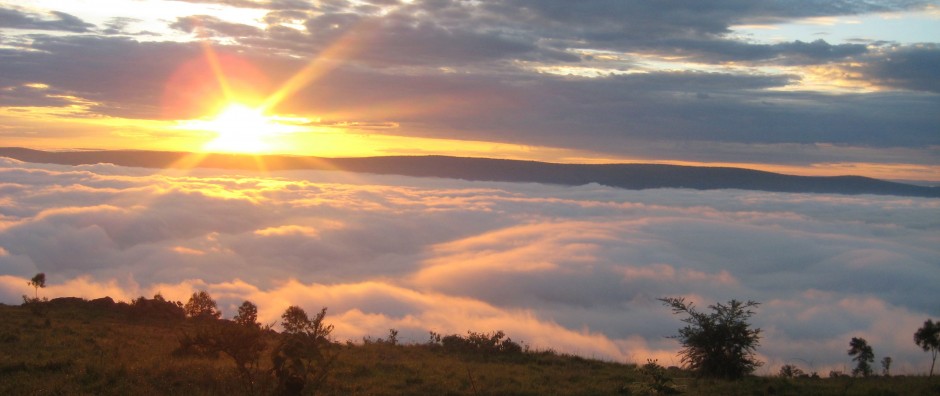I was asked recently by a friend what I feels like to be living in Tanzania. I have tried to keep my blog detached from my own emotions and feelings, in order to try to capture, somewhat objectively, what life is like here, and to be able to more effectively explain my life by detailing what actually happens. In short, I have tried to leave it to my readers to make their own judgement about my experiences. Today, I thought I would try to give you more insight into the emotional particulars of my experience, as best I can.
My answer, to my friend, was that it feels like home. When I was out of town last weekend, it felt really weird to be a tourist again. On top of this, I have reached the point where I feel relatively well adapted to all of the crazy things that happen here. I don’t feel as surprised or shocked by events in my day to day life. If something odd happens, I just chalk it up to “Tanzania” and move on. I expect that at some point something so completely shocking will happen that I will have no choice but to be blown away, but I have adapted to life in Ngara, and all the routines that last July I simply would have been unable to imagine.
I don’t feel like I am part of the culture, and I don’t think I ever will, but I have a decent understanding of what the Tanzanians I interact with are like, even if sometimes I have no idea why they do some of the things they do. The people I know are all very different, but at the same time, as an outsider, their cultural similarities are so glaring that I really do feel like I have begun to understand – as best as an outsider can – what kinds of things Tanzanians value, and the myriad ways that their social interactions are so different than my own. I often wish I understood more of the many conversations I overhear, but my language skills and understanding of some cultural nuance generally allow me to pick up the general meaning of a conversation, even if the complete picture eludes me. I think this is the biggest way in which I feel I am an outsider, unable to fully understand Tanzanians because I get an English version of their thoughts and ideas.
Still, I find myself unconsciously adapting Tanzanian phrases (this is definitely worth another post at some point), and feeling a sense of shock when things are extra-ordinary beyond Tanzanian extra-ordinary. For instance, on Friday two wazungu (white) women came to my school to teach hip-hop dance during sports and games. That in itself was a surprise, as Tanzania is pretty conservative, and a lot of hip hop dance edges on sexually explicit. Despite this, the Tanzanian (or Kenyan) version of MTV airs music videos that are just as explicit sexually as MTV. In any case, I had met these women previously, and found it very pleasant to chat with them, as they are very nice. However, one of my first thoughts was actually “I can’t believe she is wearing spaghetti straps.” So, on Friday I was not entirely surprised to see them both wearing skin tight workout pants, but nonetheless still very shocked. Pants – form fitting jeans especially – push the envelope here, and to wear something so skintight is close to nakedness in the minds of Tanzanians. I was happy at least that their pants covered their knees, because the knees are a very sensual body part here. I told them – feeling a certain degree of awkwardness – that next time they should wear shorts over their pants, or something much looser, because what they had on would attract a lot of attention.
I was gratified, though also embarrassed, when one of the female teachers I work with said, “your wazungu friends, they are so tight.” I said, “Oh, you mean their pants, we would call that skin-tight. I told them that it was not so acceptable here to have such tight pants.” She said, “Oh yes, they are naked to us. We are not used to this clothing. They will get much attention from the students.” And so, I was not only a cultural intermediary, but also unable to avoid the association of my own difference. I am sure I have embarrassed myself by not understanding some of this conservative cultural nuance as well, but in this case, and later, as I explained some things about life in Ngara, I couldn’t help but feel like a cultural insider, at least by comparison. This kind of adaption is an ongoing process, but certainly one that I feel defines my existence here to an extent. I will always be an outsider, but I am more of an insider than any tourist will ever be.
